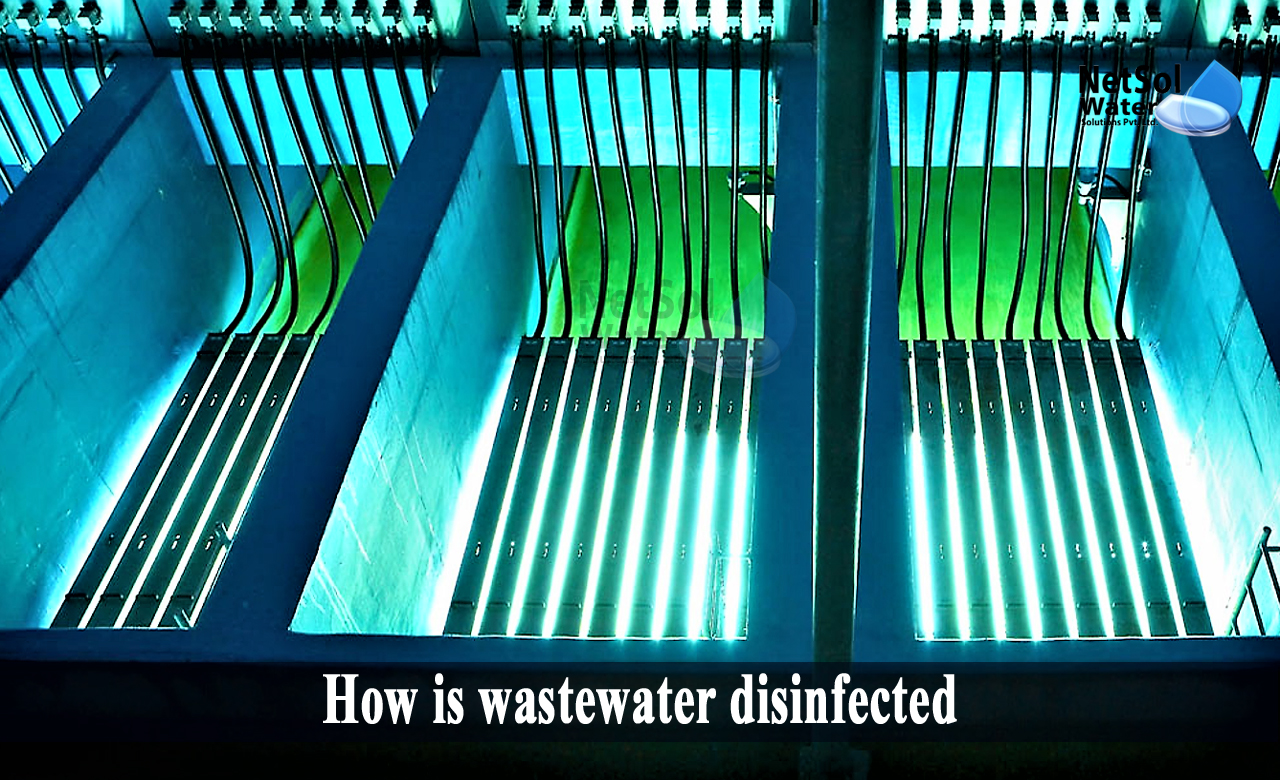Disinfection is regarded as the primary mechanism for inactivating/destroying pathogenic organisms, in order to prevent the spread of waterborne diseases to downstream users and the environment.
Pathogenic bacteria, viruses, helminths, and their eggs, and protozoan cysts are among the organisms of concern, in domestic wastewater.
Let us enlist the details of the wastewater disinfection in this blog.
What occurs if wastewater is not disinfected?
Microscopic bacteria and viruses that cannot be seen are abundant in tertiary treated wastewater, posing a serious but silent threat. Waterborne diseases such as typhoid, hepatitis, and gastroenteritis are all caused by wastewater.
How is wastewater disinfected?
Different methods for Disinfection of wastewater
For onsite wastewater treatment systems, there are three basic disinfection methods: chlorination, ultraviolet radiation, and ozone.
UV radiation and tablet chlorinators appear to be the most effective method for disinfecting small wastewater flows, in general. Ozonation has potential as well, though more technological development may be required.
Chlorination
Chlorine is a disinfectant with some health and safety concerns, but it has a long history of being an effective disinfectant. Before deciding whether chlorine is appropriate for onsite wastewater treatment, it is necessary to understand the benefits and drawbacks of this disinfection method.
Advantages of chlorination
• Chlorination is a well-known technology.
• At the moment, chlorine disinfection is less expensive than UV radiation or ozone disinfection, (except when de-chlorination is required or fire code requirements must be met).
• The chlorine residual in wastewater effluent can prolong disinfection even after initial treatment, and can be measured to assess effectiveness.
• Chlorine disinfection is consistent and effective against a broad range of pathogenic organisms.
• Chlorine has the ability to oxidize certain organic and inorganic compounds.
• Chlorination has adjustable dosing.
• During disinfection, chlorine can eliminate certain noxious odours.
UV Wastewater Disinfection
UV water disinfection technology has grown in popularity around the world. The main reason for this is its low cost, and UV is preferred as an alternative to traditional chlorination not only for wastewater disinfection, but also for process water disinfection, among other things.
Ozone
Ozone, like chlorine, is a strong disinfectant that kills microorganisms by oxidation. However, unlike chlorine, it does not need to penetrate the cell wall to be effective. In addition, ozone is far more effective against viruses than chlorine.
Ozone disinfection mechanisms include the following:
• Direct oxidation/destruction of the cell wall, resulting in cell constituent leakage outside the cell.
• Reactions with radical ozone decomposition by-products.
• Nucleic acid constituents are damaged.
• Depolymerization due to the breakdown of carbon-nitrogen bonds.
Because, disinfection is dependent on the transfer of ozone to the wastewater, an ozone disinfection system strives for maximum ozone solubility in wastewater. The amount of ozone dissolved in wastewater at a constant temperature is determined, by the partial pressure of gaseous ozone above the water, or in the gas feed stream.
Prior to installation, all ozone disinfection systems must be pilot tested and calibrated, to ensure they meet the discharge permit requirements for their specific sites.
Factors that influence disinfection of wastewater
The effectiveness of wastewater disinfection is influenced by:
· contact time,
· pH,
· concentration and type of disinfecting agent,
· wastewater demand,
· temperature of wastewater,
· flow rate, and
· concentration of interfering substances.
Although, it is impractical to accurately identify all wastewater characteristics of small flows due to differences in location, water use, seasonal variations, waste-stream make-up, and other factors, it is critical to have a general understanding of the wastewater characteristics, if the disinfection system is to function properly.
Conclusion
The quality of the wastewater being treated is the most important factor in disinfection. It is easier to disinfect wastewater that has been thoroughly treated. That is, regardless of the disinfectant used, the disinfection is more effective.
How can we assist?
Netsol Water uses environmentally friendly technologies such as, UV treatment, chlorination, de-chlorination, or ozone disinfecting treatment for wastewater disinfection and industrial wastewater treatment, in line with trends in developed countries and as a responsible step forward, to safeguard the environment.
We havealways assisted in the resolution of hundreds of water-related process challenges, through the use of a wide range of specialized water treatment technologies. We can collaborate with you to create a specific water treatment solution that meets your demands, as well as an on-going service plan to maintain your system completely or partially.
Netsol Water is Greater Noida-based leading water & wastewater treatment plant manufacturer. We are industry's most demanding company based on client review and work quality. We are known as best commercial RO plant manufacturers, industrial RO plant manufacturer, sewage treatment plant manufacturer, Water Softener Plant Manufacturers and effluent treatment plant manufacturers. Apart from this 24x7 customer support is our USP. Call on +91-9650608473, or write us at enquiry@netsolwater.com for any support, inquiry or product-purchase related query.



